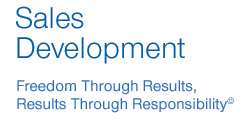Is Your Sales Team BURNING UP PROFIT?
August 14th, 2017
Wise business owners consistently evaluate key metrics affecting their bottom line. In an effort to increase profit, owners and their CFOs and controllers review factors ranging from the cost of goods, salaries, pricing, inventory turns, receivables, and more.
Few companies, however, evaluate ways to improve the area that holds the largest potential influence on profitability — their sales department. Since time = money, salespeople must use their time (and your company’s support resources) effectively. Unfortunately, most do not. Here are just a few of the most popular ways that many salespeople burn up profit….:
1. Spending significant time with unqualified prospects.
2. Talking when they should be listening and understanding.
3. Not establishing Ground Rules.
4. Giving presentations to unqualified prospects.
5. Offering pricing before understanding the whole picture.
6. Creating and sending proposals before understanding the whole picture.
7. Listening with Happy Ears, instead of learning the truth.
8. Sending multiple proposals to address the same opportunity (because they didn’t learn what was really required in the first place).
9. Emailing or texting when they should be visiting/in dialogue.
10. Offering unnecessary discounts.
11. Understanding true buying motives.
12. Poor territory management.
13. Poor time management.
Most of these issues can be addressed through the implementation of an effective sales plan, success recipe, and sales process.
Ineffective sales management is also a huge profit-killer. Sales management is either pathetic or woefully non-existent in the vast majority of private companies. You may be thinking “my sales staff is too small”, or “I can’t afford a sales manager.” In fact, you cannot afford to ignore the sales management function. It is absolutely essential if you are serious about growing and scaling your revenue and profit. If your sales staff is small, make it happen. The function does not need to be full-time. Sales management can be one of the many hats you (or one of your execs) wear. It can also be outsourced. Effective sales management is not time-consuming, but it is vital.
A significant percentage of sales managers spend their time rescuing, brow-beating, record-keeping, micro-managing, and covering their butts, rather than focusing on the critical areas of consistently coaching, motivating, developing, recruiting and holding salespeople accountable.
Poor sales management is actually counter-productive and is the area where many private companies burn up the most profit. Consequently, the sales management role is also the function where the greatest potential opportunity resides.
A massive volume of profit lies in using an effective sales management process.
It is the gift that keeps on giving.
Once you implement one, you will never look back.
Copyright © Joe Zente 2017. All Rights Reserved.









